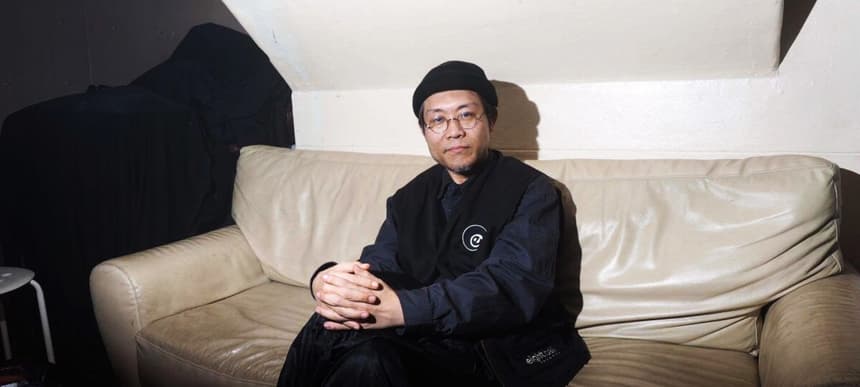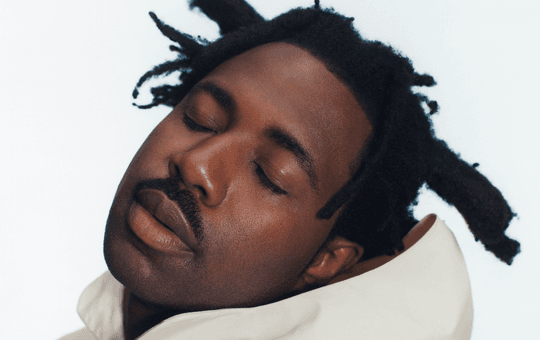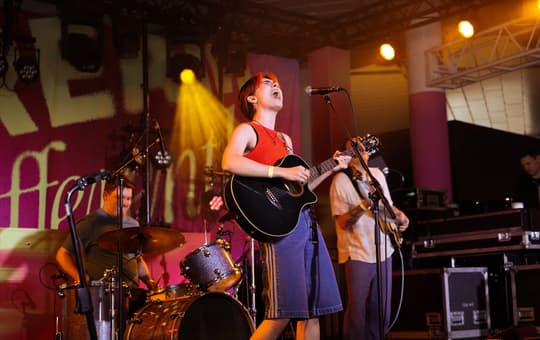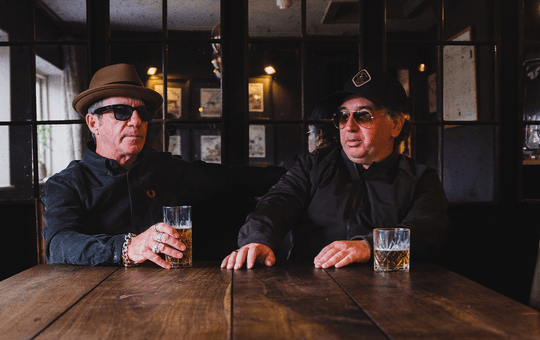
The 10 best mysterious Japanese tracks ever, according to Takecha
In the Japanese milieu, there are not many names that shine brighter than that of Takeshi Fukushima, otherwise known as Takecha. Though not as familiar to Western audiences, the 47-year-old, who divides music making with a job in a factory, has been a fixture in the Land of the Rising Sun for the best part of two decades.
Belonging to the same pioneering crew as Soichi Terada and Shinichiro Yokota and, taking influence from Yellow Magic Orchestra and Kraftwerk, his is a brand of forward-thinking house music with a big nod to the past. Gaining recognition in 2015 when his 'Deep Loop' was re-released on the ハウス Once Upon A Time In Japan… compilation, gaining him a new audience, Takecha's name outside of Japan is beginning to slowly rise.
His recent album, Deep Soundscapes, contains a selections of tracks made from 1990 to 2013, and it is rife with mellow, ambient and warm vibrations to go along with murkier production. This wide-reaching appeal is evident in his crate-digging, as he continues to demonstrate how much of a student he is for the music from the land of his birth. Though gradually gaining the limelight, he also wants to showcase the music of his country, particularly deep cuts from bygone eras. With that said, Takecha sat down with Dummy to detail some of his favourite tracks from the dungeons of Japan's music scene.
Takecha: "When I was a junior high school student I bought an album containing this song, purely because I saw it advertised in some keyboard magazines. I still have it in good condition at home! This production made me consider a future where songs were only produced by MSX's system. I was able to meet the Mako in the 90's, thanked him for making such a wonderful pioneering album, and also gave him a completed ‘Kind Of Deep’ – my breakthrough single – at that time."
"I got this CD from my friend during the 1990s. At the independent production opus of the mini album, it was very rare at that time. I like all songs, but especially this song is pure and deep hitting music at its best. I felt a sense of sympathy that the sound variation was minimal and it was still so simple."
"I was introduced to this in the 1980s by my neighbourhood music companion and I've been looking for it ever since. Namba was originally a progressive rock musician, but this song is awesome – I was surprised at the contrast between his work because it was such a killer dance tune."
"I also discovered this song in the 1980s, on a music program like MTV. It is a tribute to the Art Of Noise's ‘Beat Box’. It’s a firm favourite and, after all, I have a strong influence from this era!"
"This is a remix of the famous Japanese fusion band Casiopea. I remember listening to Casiopea’s album because it released on the same label as Yellow Magic Orchestra – Alfa. By the way, make sure you listen to a song by the original keyboardist, Minoru Mukaiya, named ‘Asia’!"
"Tachibana’s presence in Japanese music was perhaps the most heterogeneous one. Without his music, I can not tell the story of Japanese pop music. All of his albums are great but the track ‘XP41’, appearing on the Taiyo Sun album, was the most picturesque record of all – it is very well-made electronic pop. At that time I was longing for the unique sound of Fairlight CMI. In cooperation with Devo's Mark Mothersbaugh there is the XP series. There is another XP in the cassette book, 'music for insomnia'".
"It was used as an opening song for a TV program called Pasocom Sunday. I didn't knew the track ID for such a long time but once you hear it is unforgettable music, right?"
"A project by keyboardist Tokyo Zawinul Bach. This is one of the songs in a concept album with original song remixed from the beginning. It is pleasant that Aoki Takamasa is chopping Tzboguchi's jazz piano!"
"He is no longer making house music anymore. I invited him to my party two years ago and asked him to return to the house music scene somehow, but after all I could not move his mind with money! But I truly love all Suzukiski's work from the 90s. There may have been some people making similar music at home, but there were very few people that could release such an excellent body of work."
"FOE is a project by Haruomi Hosono. It features such an impressive bold bassline – I’ve listened to it so much – I just can’t stop going back to it. Although this is often the case with all work by the YMO family, I just had to give this one praise!"
Stream Takecha's Deep Soundscapes below.
Listen to Dummy's curated playlists on Spotify.













